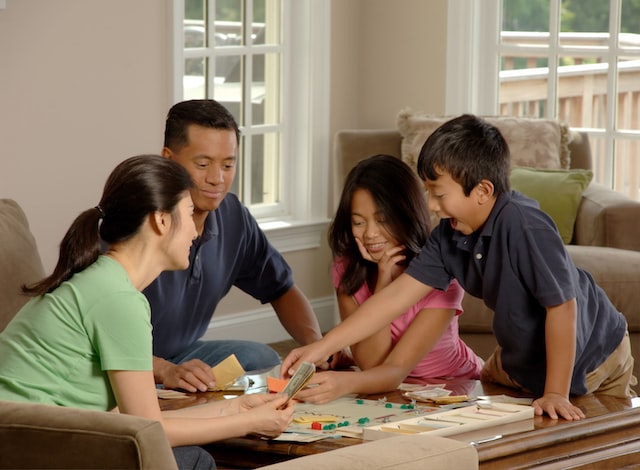Teaching children how to play board games is a great way to engage them in learning while having fun. Playing board games may help children improve their executive function skills.
However, teaching new players how to play a board game can take time and effort. Here are some helpful strategies that will make the process go smoother.
Explain the Strategy of the Game
A lot of the fun of playing a board game lies in the strategy of deciding which moves to make and how much risk to take. It is especially true in multiplayer games, where players must balance their needs and desires with their colleagues.
Playing a new game is one of the finest methods to learn about it. It is also the best way to gauge how your children might respond to it. Consider bringing the family to your local board gaming store for a play session. If your children grew fond of these games, there are gift ideas for board gamers. You may give them during their birthdays. It will give you a feel for how they’ll react to the experience and how to adjust the rules and other features to their liking.
Set Up The Game
Board games are a great way to get your kids to practice various skills, including teamwork, motor skills, problem-solving and social skills. However, they can be intimidating for younger children, so a few helpful strategies are needed when teaching them how to play board games.
First, let them know how the game works. The core of all games is a “game loop.” The code runs tens to hundreds of times a second and tells the computer what to draw on the screen.
The game loop transmits a packet containing the current state to the server to update player information, which is subsequently sent back to the client. Most modern online multiplayer games use a client-server model where the client sends inputs (key presses, mouse movements and clicks) to the server, and the server updates the game world for all players.
Explain the Objectives of the Game
In the case of a board game, there are several different objectives that each player must meet. These can include:
I am using a strategy, protecting centerpieces and defeating all enemies or other players.
Additionally, games can teach players to develop logical and deductive thinking skills.
It is essential for children who are developing their cognitive abilities.
Research has shown that playing board games improves concentration and lengthens attention. It is because it forces children to focus on a specific task and stay focused on it without distractions or interruptions.
Explain the Variations of the Game
Board games are a specific type of tabletop game that usually include pieces or counters that are moved on a board according to particular rules. These games can be an excellent way for children to learn essential life skills while having fun!
They can also be an excellent way for teachers to teach children critical social and academic skills. Twinkle has a fantastic range of board games perfect for children and their teachers to work with.
One of the best things about board games is that everyone in the family can play them. Many companies promote the “family game night” concept, which encourages families to set aside time each week to play board games together.
Explain the Tough Moments and Challenges of the Game
There will be some tough moments and challenges when teaching a game to new players. It’s important to let them know ahead of time what might happen so they can make the right decisions for their turns.
It can also help them learn how to deal with the good and bad luck of playing a game. Losing is hard, but learning to accept it with dignity and move on is a valuable skill they will need throughout life.
Once the rules and objectives have been explained, the next step is to teach them how to play the game. There are several ways to accomplish this.
Read More:
How To Uninstall a Game on PS4
Encourage Questions
New players often want to ask questions if you’re teaching a board game. They may be trying to learn how to play a game or curious about what they’re doing!
For this reason, it’s essential to encourage your students to ask questions. Whether it’s asking how to play the game or what happens when they lose, enabling them to ask questions can make their experience more enjoyable!
Besides the fun factor, asking questions can also help your children develop their language skills. It can help them express themselves more clearly and creatively and benefit future learning in school and other settings.
Explain The Rules
Board games have a specific set of rules that define how they work. These rules can vary depending on the type of game and how it’s played.
Generally, board games are turn-based. It means that players can take turns moving their pieces around the board, which enables them to win by getting the first player to reach the end of the board.
When teaching children how to play a board game, the first step is to explain the game’s primary objective. It helps the child understand the underlying context behind the rules and mechanics that make up the game.

